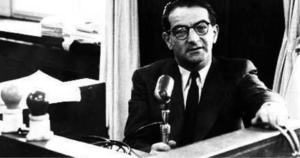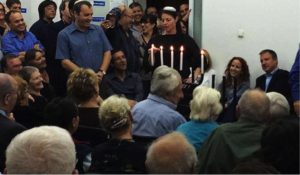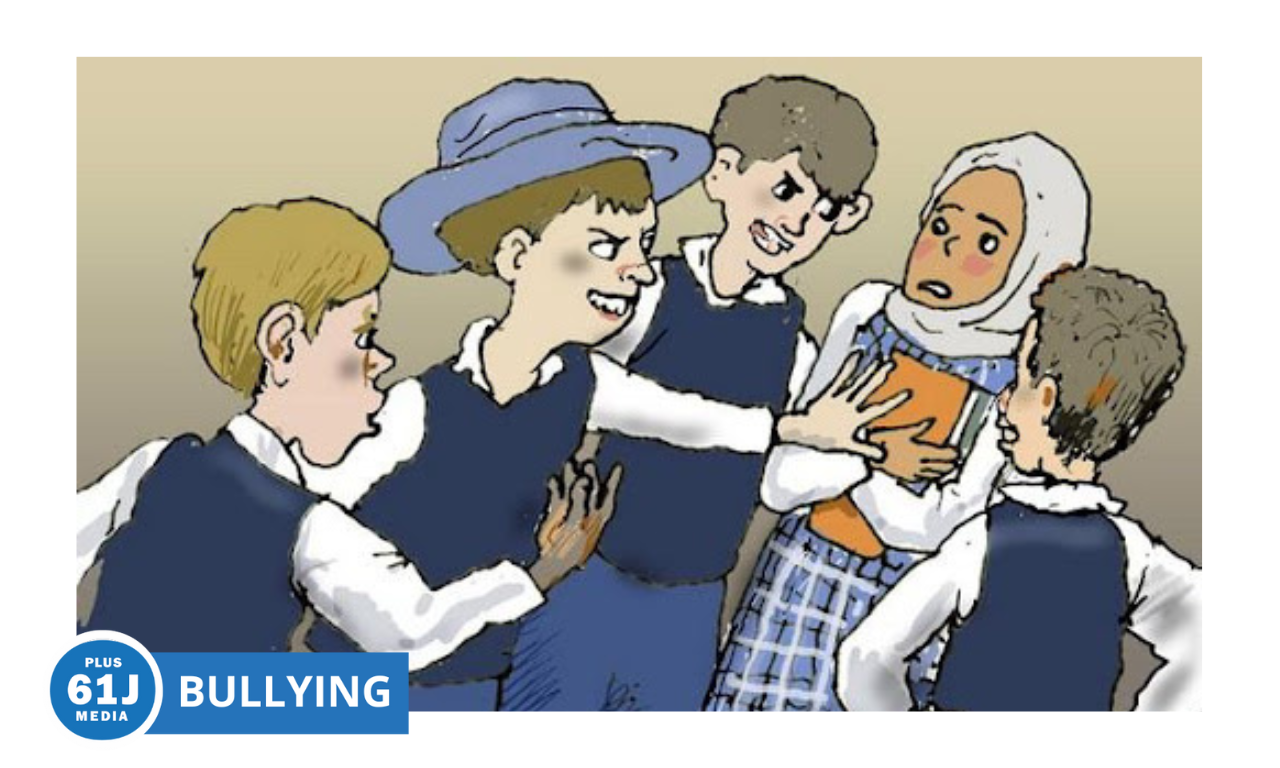Published: 4 September 2017
Last updated: 4 March 2024
Merav Michaeli, 50, chairwoman of the second-largest faction of the Knesset, The Zionist Union, is in Australia this month on a speaking tour as a guest of Habonim Dror Australia and Ameinu Australia in Sydney, Melbourne and Canberra. Michaeli, a member of Israel’s Labor Party, is the granddaughter of Israel Kastner, and carries with her the dire history of Kastner’s horrific murder in Tel-Aviv in 1957.
As a staunch feminist and former op-ed writer and media personality, she remains highly committed to gender and equality issues.
What attracted you to come to Australia, MK Michaeli?
I hear that Australia is the best place in the world to live. Who wouldn’t want to come and meet the people who are making this miracle happen? I hear of a vibrant, varied Jewish community with a strong sense of identity and a warm regard for my country. I look forward to seeing all of that in person.
Many years ago, your grandfather, a Hungarian Jew and Holocaust survivor, was murdered by an assassin who wrongly faulted him for collaborating with the Nazis. What it was like growing up with the Kastner legacy as part of your personal family history? Is it still a subject that divides people today?
As a child, I was always aware of the story and it is a prominent part of me and my family’s heritage but I grew up in the ’70s, when Kastner was scarcely discussed in the public sphere. As I was getting older – and more in the public eye – it became more and more present both in the Israeli discourse and in my life and work.
It is extremely important for me to tell this story, because it is dramatically important for the History of Israel. And yes, unfortunately but not surprisingly, it is used again for incitement and hate against me and against my grandfather for political benefit, just the way it was used in Israel originally.

Photo: Israel Kastner in his trial (AP)
Today we see heated, hostile public debate. Are we again crossing dangerous lines?
Indeed, there is a dynamic in which leaders and public figures come with their right-wing agenda, set ‘fire’ in the public discourse and demand that everyone straighten out according to their beliefs. As for those who do not oblige, they circle them out. It is reminiscent of the times before Kastner’s murder during which he was cast as a Nazi collaborator, as if he negotiated with the devil. The claims are similar – and to the people who are throwing blame around, facts are irrelevant. Facts do not matter to them.
Where do you draw the line between freedom of speech and incitement to violence?
I would like to see leaders take responsibility and talk to the public in clear terms. This is not happening today. Unfortunately, things are going the other way, as for some political figures all means are valid, ‘all means are kosher’. Netanyahu understands the meaning of what he does, but he is indifferent and treats himself as someone who does not intend things to happen. For him, he did not mean for things to happen 21 years ago, during the inflammatory period that led to Rabin’s murder. But Rabin himself certainly said at the time that the violence [against Rabin] came as a result of Netanyahu’s role in it.
After all, Netanyahu is a key player on this issue. It is not a matter of freedom of expression for politicians, but the harsh rhetoric that he uses. That is Netanyahu’s narrative, and he began that many years ago with ‘the leftists have forgotten how to be Jewish: right-wing government is in danger, Arab voters are moving in quantities to the ballot box, left-wing organisations are bringing them on buses’ – as if Arabs do not have the right to vote, or being an Arab means an immediate danger.
Do you think that any future right-wing leaders will adopt the same postures?
I do not know what will happen in the era after Netanyahu. But for Netanyahu it works today, and there is competition among them who will escalate those texts further. Unfortunately, this is the dynamic these days.
Are you content with Avi Gabbay’s win and entry into the Labor Party?
While I did not support him through the campaign [Michaeli ran with Amir Peretz], I am fully complying with the choice of our party voters. Once a chairman is elected, he is my chairman as well. Gabbay brings with him positive momentum and a sense of hope, and that is a wonderful thing. As a matter of my record, I always stand by our party chairman or chairwoman, Herzog or Yachimovich. I hope that the Labor party will unequivocally support Gabbay. With the right-wing violence that has been directed at us for years and years, we got used to swinging it towards one another from our own camp, instead of pushing back. The eternal nation fears not a lengthy journey. We have to be there when [the left wins] and not indulge in despair and frustration.
How do you sum up your years as chairwoman of the second-largest faction in the Knesset, and do you think the opposition’s tools are effective? You have gone all the way to the Supreme Court requesting rulings against legislation in order to fulfil your party’s agenda – is separation of powers dead?
We must not rely on the High Court as our first tool. I applied to the High Court of Justice only in the case of the ‘Third Property Tax Law’, because in that case we had reached a dead-end. The coalition robbed us of all the tools we have at our disposal to wage a struggle as an opposition.
What other tools do you have?
In the previous Knesset session, when the coalition outnumbered us by only three votes, they lost in votes on 10 different bills. That was unprecedented, even though it did not topple the government, but we managed to halt things. During the Knesset session that ended a month ago, we were outnumbered by 12 votes, clearly there is no way to manoeuvre around that. Yet, still we hindered the hot Public Broadcast Authority Bill. In the case of legislation to restrict civil-rights organisations and limit their free speech, we succeeded in depleting much of the substance. It is a Sisyphean task with no spotlights and headlines.
Your Employees’ Protection against Workplace Maltreatment legislation has passed the preliminary vote, but stalled – why? Is it because a Labour lower court used that draft bill as guidance to rule against Mrs Sara Netanyahu’s wrongful practices as an employer in the Prime Minister’s Residence?
I had an agreement reached with the Ministry of Commerce with respect to that very important bill. But it is now stalled. I approached MK David Bittan, the Chairman of the Coalition, trying to work my way with it. He told me that due to the legal proceedings and the appeals by Sara Netanyahu, and until a full on-the-merits ruling will be given, the bill will be held. In the meantime, the bill as formulated in its preliminary vote has already been cited in four different labour judgments, so the content and substance are out there, making an impact.
The twentieth Knesset holds an unprecedented number of women, 33 out of 120 (compared to the previous pinnacle of 27 out of 120 in the nineteenth Knesset). Do you feel the progress?
The nicest thing about the elected women of this Knesset is that they are all feminists. It wasn’t always the case. There is no woman in the current Knesset who will refuse to work together on gender issues, from right to left. In the past there were women who opposed a feminist agenda. I think of feminism in broader terms, much broader than my right-wing friends, because I see the need for equal rights, not just between Jewish men and women, rather between all. Obviously, on that specific point the right and left are in contention.

Photo: MK Merav Michaeli lighting Chanukah candelas wearing a Kippa, 2013 (Kikar Hashabat)
Nevertheless, you succeeded in creating impressive cooperation with MK Shuli Mualem of the Jewish Home on the subject of the Prostitution Rehabilitation and Clients Incrimination Law.
Shuli and I are bound by some historical legislation. One of them is free legal aid for victims of severe sexual offenses. As for the Prostitution Rehabilitation, it is my friend, Meretz Chairwoman Zehava Gal-On, that has been pushing this for years, even before I joined politics and I, of course, signed on with many of us, women MKs.
It is a very complicated bill and will take time to work through contrariness. I am very concerned because we live in a patriarchal society where men still set most of the agenda. This law addresses and touches upon one of the most ancient elements of women’s exploitation, and I am not sure how many men, who are the political majority, will be mobilised for such a cause.
How sexist is the Israeli political scene?
As far as women’s status goes, Israel is a good place, similar to most societies in the Western world. We do have our unique challenges – unequal opportunity in the IDF, given that there is mandatory draft for women too, and that the military is so prominent in Israeli society, economy and politics.
Another unique aspect is the exclusion of women from public spheres on grounds of political Orthodox pressures. These are major challenges – not only for women, of course – but to the identity of the State of Israel. Personally, I have always been a woman and it has always been a man’s world, so you get quite used to dealing with it.
How far is Israel is stuck from a solution on the Palestinian issue?
Unfortunately, today there is no possibility of change. Netanyahu is interested only in cultivating the right-wing voter base. President Trump is very busy with his own dealings. We do need a Biblical miracle in order for something to happen.
If in the past, I thought that peace is worthwhile, today I know that it is possible.
Do you still believe in the two-state solution?
I do, but who knows what that will look like? I firmly believe in peace and in a political agreement with our neighbours. For the last four years I have been attentive to what is being said in the Knesset Foreign Affairs and Security Committee, and I receive the intelligence materials and briefings. If in the past, I thought that peace is worthwhile, today I know that it is possible.
MK Michaeli will be speaking in Sydney on September 13, 7:30 PM and in Melbourne on September 17, 8:00 PM.
More information - https://www.trybooking.com/
RSVP to mazkir@hdoz.com





Comments
No comments on this article yet. Be the first to add your thoughts.